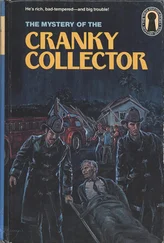Masha knew her mother was worried about her. She wished her daughter would do something else, follow in her own footsteps rather than Papa’s, study medicine rather than law. The legal field, family experience had shown, contained more blood, more death, and less hope for a healthy recovery. Masha’s father had thought that Moscow’s best high school for math and physics, where Masha had started to go after she won a couple of city-wide math contests, would help his daughter learn to think logically. But in the end, her brain had become home to both the orderly logic of mathematical thinking and the chaos of a still-unsolved murder. The murder of the person who, for Masha, had been the measure of all things until she turned twelve. The person who was the only solid ground she knew, the reassurance that this whole miraculous world around her was not also just an endless putrid swamp. But then, suddenly, that ground sank beneath her feet like some sort of Atlantis, and nothing could replace it.
Masha’s mother had never managed to step into that role for her young daughter. She might as well have been Papa’s daughter, too, even though she was only a year younger. In her youth, Natasha had begun a residency under the famous Dr. Ryabtsev, who had expected great things from her—until Fyodor asked Natasha to have a baby. When Natasha reported her pregnancy to Ryabtsev, he shrugged and told her she’d need to find a new job, since pregnant women and young mothers couldn’t do science. Their minds, he said, were elsewhere by definition. She tried to convince the professor that wasn’t true, that she was different, but Ryabtsev had only smirked, patted her on the shoulder, and told her, absentmindedly, to take good care of herself.
Natasha had rushed home in tears and unleashed her hysteria on her husband. What would become of her now? Was she going to be one of those old hens who only ever talked about diapers? No, it was unthinkable, impossible, she wouldn’t do it! It wasn’t too late to go to the clinic and—
Fyodor slapped her then, the only time ever. Then he hugged her and promised, in a soothing whisper, that she’d still be the most amazing woman scientist since Marie Curie, and that Ryabtsev was an idiot, bringing women as beautiful as Natasha into his lab and expecting them not to have families! And they would have an amazing daughter, he said, just as gorgeous as her mama…
“It’s a boy,” she had corrected him, sniffling. “We’re having a boy.”
Both parents turned out to be wrong. Masha was a girl, and she did not inherit her mother’s good looks. Actually, she hardly took after her mother at all. But Fyodor Karavay didn’t care. As soon as he came home from work every day, he rushed to the cradle, and stood enchanted with little Masha in his arms, just smiling happily as his wife scolded him, “Did you even wash your hands before you picked up the baby?”
Natasha complained to her friends, too. “He goes right to the baby! No thought for hygiene!”
But they just told her how lucky she was to have such a doting husband and such a sweet little bundle of a baby.
Masha knew from early on, however, that her birth had made her mother unhappy. Natasha’s figure suffered: the tiny waist expanded, her breasts hung lower after nursing, her stomach grew folds. Natasha resented the fact that her backside had grown as wide as a truck driver’s, and she hated that her feet grew a whole size and she had to give away her impressive collection of shoes. She looked in the mirror and didn’t recognize herself, and she cried often. Giving birth coincided, in her, with the first symptoms of getting older, making it doubly hard. Nothing helped dispel her persistent melancholy—not her husband’s reassurances or presents, not even their date nights when they left little Masha with her grandparents. Natasha sank deeper into depression.
Masha’s father was the one to stop by the supermarket after work and cook dinner for the family. He read Masha bedtime stories, and then, after midnight, sat down to get back to work. Papa’s head never hurt, unlike Mama’s. He never brushed Masha aside when she started asking the thousands of questions that children ask. Natasha, on the other hand, would rant and rave, right in front of her daughter, about how having a child had wrecked her career. Fyodor would whisk Masha off to her room, but Masha still heard her mother’s resentment, and also sensed that this wasn’t the whole truth. Deep inside, Masha suspected that Mama had gotten that residency with Ryabtsev due to her youth and beauty, not because she was really a gifted scientist. But she needed to play on her husband’s sense of guilt constantly, as sure as his beard grew every night. It was Fyodor’s fault that she was no longer beautiful and would never get her doctorate.
It was around this time that Nick-Nick started turning up regularly at their apartment. His friendship with Papa had cooled for a long while, all because of their choice of profession. One was a prosecutor, the other a defense attorney. Even ten years later, the two friends were prone to long arguments in the kitchen. Katyshev, outraged, would go on about how everything was rotten, how the whole legal system was hopelessly out of date, how every investigative agency was corrupt but all the bad guys still needed to be proven guilty. To which her father would respond calmly that, here in Russia, they’d never had any problem finding somebody to put in jail. The more interesting question, he thought, was whether or not there would be anyone to defend them.
Then Mama would stride into the kitchen, sit down on Papa’s lap, wrap her arms around his neck flirtatiously, and ask them to talk about something else, anything but work. And Katyshev would obediently settle down and change the subject.
It was only when she was much older that Masha realized that Nick-Nick had always been in love with her mother, and probably still was.
He came to see them frequently, even when her father wouldn’t be home. He played with Masha (having no children of his own), and he tried to help Mama in the kitchen. She would always laugh at him, but she never chased him out. Masha wondered, sometimes, whether Papa had known. She thought he must have. They were playing an ancient game, with rules even the village idiot could understand. And whatever else he was, Fyodor Karavay was no idiot. But Mama came back to life in the glow of Nick-Nick’s unspoken adoration. She started wearing her pretty dresses again, putting on makeup, and smiling. She even became a better mother. She cooked, she hauled Masha to gymnastics and ceramics classes (though Masha didn’t excel at either), she took her to museums and historical palaces. Natasha was an extremely well-educated woman, and she began talking to Masha, teaching her all kinds of interesting things. But Masha still missed her papa, and in what would turn out to be the last years of his life, Papa was always working, and finding less and less time to spend with her.
When he did find an hour or two, though, that time was for them alone. He and Masha wandered the boulevards of Moscow and went fishing, swimming, and skating. He knew that sometimes, when they were out, Nick-Nick would visit Mama. But he trusted them both, and even felt sorry for them. Sorry for Nick-Nick because he had chosen the wrong career and the wrong wife, and had no children, which meant he didn’t have the kind of happiness Fyodor did. As for Natasha… Well, why shouldn’t she flirt a little? He thought he could trust them, and he was right.
After Papa died, Masha was terrified, and she secretly, fervently wished that Nick-Nick would marry her mother. The darkness around her was so thick that she craved the sight of a familiar face. But oddly enough, Nick-Nick’s visits became increasingly rare, and finally dwindled to nothing.
Читать дальше












